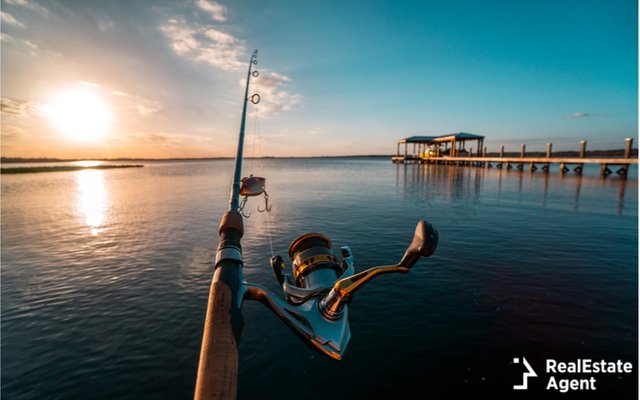
Saturday has come. The sun is shining, and the week, with its pushy bosses, piles of assignments and looming deadlines is behind you. Now, you stand on the banks of a shimmering emerald green lake and cast your line once again, with its lead weights, sharp barbed hook and colorful cork bobber, whistles through the air. With a satisfying “plop” the cares and troubles of life slip away, out of sight and out of mind. The only things left in your world are you, your pole and a lake full of crafty quarry.
For anyone who has ever spent a weekend fishing knows this feeling intimately. For those weighed down by the responsibilities and frustrations of day-to-day life, fishing offers a quiet respite and a welcome distraction. But what if you’ve never gone fishing? Never fear! We’ve put together a quick guide to prepare you for your first fishing trip. Let’s get into it!
Beginners guide for aspiring anglers
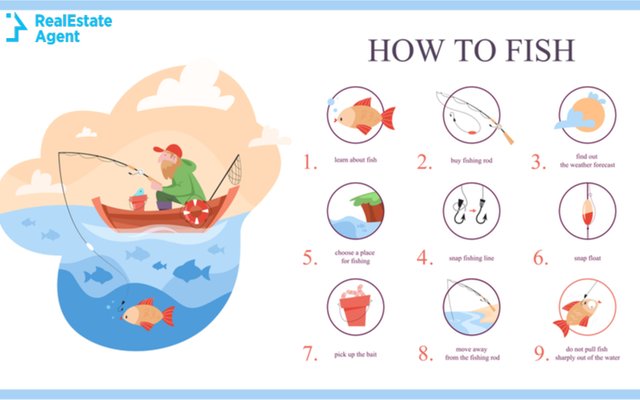
So you’ve never gone fishing before. Maybe you grew up in the city, with no body of water to cast a line and relax for a day. Maybe you’ve had access to a lake or river, but you simply never got it into your head to go fishing. Whatever your reasons may be, you shouldn’t let them stop you from experiencing the joy of fishing.
For those who haven’t ever fished before, fishing can seem complicated. How do I cast a line? How do I bait a hook? Speaking of bait, what type of bait should I use? Don’t worry! Below, you will find some quick tips and tricks that’ll have you reeling in largemouth bass and speckled trout like a seasoned professional.
Getting kitted out
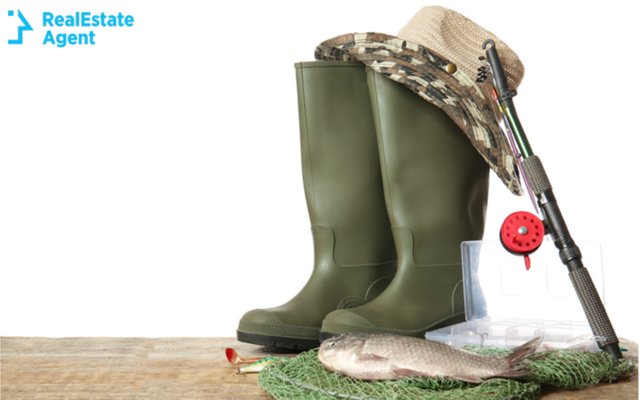
So what type of pole should you use? What type of reel should you use? Should you use barbed or barbless hooks? What should you keep in your tacklebox? Let’s find out!
First of all, you’re going to need a pole. The pole you use isn’t particularly important for freshwater lake fishing; after all, you aren’t going to be battling sharks or sturgeons here. Just choose one that feels right for you, that you can see yourself comfortably holding for a day.
Choosing a reel is more important. There are two general types of reels used for lake fishing, open face and closed face. Closed face reels are more popular with beginners, because of their ease-of-use and inexpensive price. Open faced reels, on the other hand, can hold more line and are much more satisfying to use. If you’re a complete beginner, you’re probably better off getting comfortable using a closed face reel before upgrading to an open face reel.
Hooks are simple; a small bit of wire, hardened and bent into the shape of a J. Hooks come in many different sizes, but for this type of fishing you’re going to want small- to medium sized hooks. There’s also the question of whether you want barbed or barbless hooks. Barbed hooks are better at keeping a fish on the line, but barbless hooks are more humane and cause less damage to the fish if you want to catch-and-release.
Bobbers and weights are two sides of the same coin; both keep the line doing what you want it to do, in order to maximize your chances of catching a fish. Bobbers keep the last 3-4 feet of line suspended and hanging straight down, while weights provide ballast for the casting and keeping the line from drifting or floating. What type of bobber and weights you use is up to you, as the differences between the various types are mainly cosmetic.
Fishing line comes in various strengths and colors, as well as monofilament and braided compositions. For the type of fish you’ll be catching in Clermont’s lakes, 10lb monofilament line is more than strong enough, but you can spring for 12 or even 15lb line if you really want to play it safe. As far as color goes, it doesn’t really matter what you choose, although brightly colored line is easier to see, which will make it easier to tie a knot on your hook.
The last thing you’ll want to pick up at the outdoorsman shop is bait. Many old timers and experienced anglers use live bait, but for beginners, synthetic bait will do just fine. Any outdoorsman supply will no doubt have a wide selection of bait putty and fake worms engineered to attract fish and most any of these will work like a charm.
Fishing 101: casting a line, baiting a hook and more
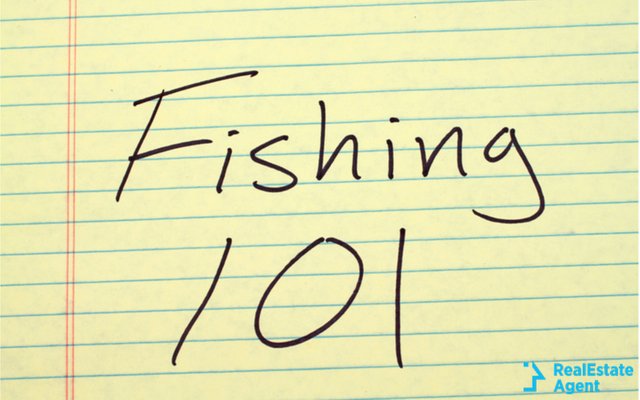
So, you’ve bought a pole and reel and all the other odds-and-ends that are necessary for fishing. You’re decked out head-to-toe in Bass Pro Shop’s finest angling gear and you’re holding your shiny new tackle box filled with hooks, spare line and all the other fishing essentials. But how exactly does one go about catching fish?
The first thing you’re going to need to do when you get to the water is put a hook, a bobber and weights on your line. Let’s start with the weights. Since these are simply a piece of lead with a hole through the middle, you’ll need to put them on first. Simply run the line through once, then loop it around and run it through again, positioning the weights about three feet from the end of the line. Once this is done, simply repeat this until you have two or three weights on the line. Then attach the bobber another 11/2 ft. or so above the weights. Once this is out of the way, attach the hook at the end with a firm knot and voila! You’re ready to fish!
Now for baiting the hook. Lay your rod on the ground carefully, making sure not to tangle the line or get it wrapped around anything. Take whatever bait you’ve decided to use, and carefully thread it onto the hook (If you decided to use bait putty, you’ll have to form it into a pea-sized ball first). Now you’re ready to cast your line and start catching fish!
Once you’ve baited your hook, you need to cast your line. After making sure there are no trees or people behind you, hold down the button on the reel, as you swiftly but steadily swing the end of the rod forward. When the rod is at approximately a 45° angle, release the button and watch as your line flies through the air and lands in the water with a satisfying “plop”. Once your line is in the water, it’s time to wait. Most fishermen bring a chair to sit in, as it might be quite a while before a fish bites. Be careful not to make too much noise or step too heavily, as this can scare the fish!
As you’re waiting, watch your bobber carefully. After a little while, the fish should come over to investigate the bait. You should see your bobber quiver a little, and maybe dip just slightly. But don’t do anything yet! When a fish bites, you’ll know it. Just keep watching your bobber, and wait until it dips under the water sharply and decisively. As soon as this happens, you’ll need to hook the fish. Yank the rod back quickly, so that the barbs lodge in the fish’s throat, ensuring that it won’t slip off the line.
Now, start reeling it in. The fish will be fighting with all it’s got, so you’ll be experiencing a lot of pull. That’s normal; simply pull the tip of your rod back and then abruptly shift the tip forward and reel in the slackline. After doing this a couple more times, the fish should come into view, with the sun dancing off of its scales as it tries to get off the hook.
Once you’ve caught the fish, you’ll need to remove the hook. Grasp the fish tightly by its lower lip, being careful not to poke yourself on its fins as it thrashes about. Using a pair of angler’s pliers, carefully remove the hook from the fish' throat and put it into your fish basket.
And that’s it! You’ve caught your first fish! This is a thrilling moment, and one that you’ll probably remember for the rest of your life. As you get more accustomed to fishing, these steps will become second nature to you, and you’ll begin to enjoy the quietness during the lulls between bites just as much as the struggle to reel in beautiful catch. Fishing is a great hobby, and one you will probably enjoy for the rest of your life. But where should you fish?
Why Clermont is such a great place for fishing
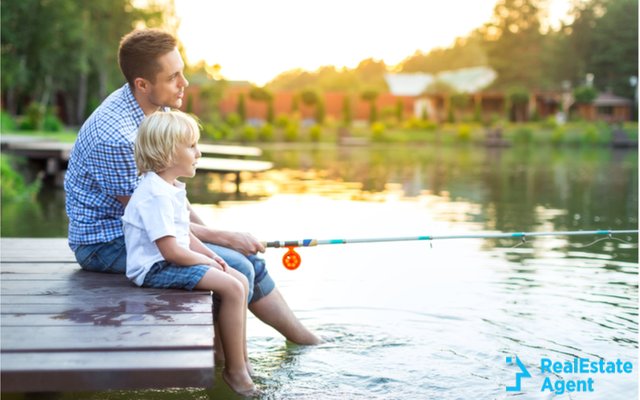
Clermont is known around the country for its watersports community, with its year-round sunny weather and many beautiful lakes. However, watersports are not the only thing popular in this town; Clermont is also an excellent place for fishing! With its many lakes and year-round good weather, Clermont is the perfect place for a retiree or weekend angler to relax by the water, catch some rays and reel in some fish.
Whether you’re retiring and want a town where you can unwind by the water or are simply looking for a place to work that also happens to have good fishing spots, Clermont is the place for you. And now is a great time to move! Real estate values are steadily growing, and real estate holds its value consistently. If you want to move to this sunny Florida paradise, you’ll need to find a real estate agent in Clermont. Your new real estate agent will help you find a listing that works for you, at the lowest cost possible. If you live in Clermont, every day can be an angling day!